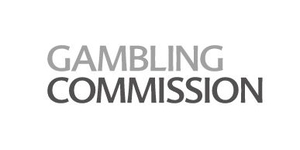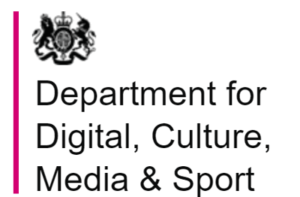 The United Kingdom Gambling Commission is responsible for the issuing of gambling licences to UK-facing businesses that want to offer gambling and betting services in Britain. On top of that, it’s the UKGC’s job to enforce the licence, making independent decision about what should happen to companies that break the rules of the licence they’ve been issued with. Despite this sense of independence, the Gambling Commission isn’t an independent organisation.
The United Kingdom Gambling Commission is responsible for the issuing of gambling licences to UK-facing businesses that want to offer gambling and betting services in Britain. On top of that, it’s the UKGC’s job to enforce the licence, making independent decision about what should happen to companies that break the rules of the licence they’ve been issued with. Despite this sense of independence, the Gambling Commission isn’t an independent organisation.
Instead, the UKGC comes under the parliamentary control of the Department for Digital, Culture, Media and Sport. The regulatory body that is the Gambling Commission was created as part of the 2005 Gambling Act, assuming full powers and responsibilities two years after that. Politicians that are in charge of DCMS are the ones that have the ultimate overview of the UKGC, meaning that it is ultimately a political body with a degree of independence.
What The UKGC Is Responsible For
 The United Kingdom Gambling Commission was formed as part of the 2005 Gambling Act, eventually being merged with the Gaming Board in 2007 and gaining a full set of powers and responsibilities. Its responsibility is the control of the following:
The United Kingdom Gambling Commission was formed as part of the 2005 Gambling Act, eventually being merged with the Gaming Board in 2007 and gaining a full set of powers and responsibilities. Its responsibility is the control of the following:
- Casinos
- Bingo
- Sports betting
- Slot machines
- Arcades
- The National Lottery
The above list is far from exhaustive and includes both online and land-based versions of each of them. Essentially, any company or business that wants to sell its wares to people in the United Kingdom are the responsibility of the UKGC. The National Lottery wasn’t always the Gambling Commission’s responsibility, but it became so when it merged with the National Lottery Commission in October of 2013.
Indeed, the only thing that some people might class as gambling that is not the job of the UKGC to regulate is spread betting, which actually comes under the auspices of the Financial Conduct Authority. Any other type of gambling, however, has to be carried out in a ‘fair and transparent manner’, with the job of protecting children and vulnerable people from gambling related harm also coming under the job of the Gambling Commission.
UKGC Link To The Government
 The link between the Gambling Commission and the government is an an interesting one. Technically, the UKGC is an independent body when it comes to its decisions of licensing and ensuring the compliance of its licensees. However, the body receives its finances from the Department for Digital, Culture, Media and Sport. As a result, there is an undeniable link between the Gambling Commission and the government in power.
The link between the Gambling Commission and the government is an an interesting one. Technically, the UKGC is an independent body when it comes to its decisions of licensing and ensuring the compliance of its licensees. However, the body receives its finances from the Department for Digital, Culture, Media and Sport. As a result, there is an undeniable link between the Gambling Commission and the government in power.
The United Kingdom Gambling Commission is defined as a ‘non-departmental public body’. What this means is that it is a quasi-autonomous non-governmental organisation, or quango. It is not an integral part of any specific governmental department, with work carried out separate from the influence of governing ministers. That being said, relevant ministers are ultimately responsible for activity of the body.
Because is an executive non-departmental public body, the UKGC is overseen by a board rather than ministers. The appointment of someone to the board is decided by a minister, however, which is why it can be quite confusing. The appointing minister follows the Code Of Practice laid out by the Commissioner for Public Appointments. The body has its own budget and its own staff, which is intended to keep it as separate from the government as possible.
When it comes to the minister that bears the responsibility for the Gambling Commission, it is the Secretary Of State For Digital, Culture, Media and Sport. Sometimes referred to simply as the Culture Secretary, the post was formed under a different name in 1992 and David Mellor was the first politician to become its minister. The department of DCMS is responsible for numerous things alongside the Gambling Commission.
As well the world of gambling and racing, the department is responsible for the likes of charities, the creative industries, architecture, heritage, tourism and museums. Essentially, anything that can be considered to be slightly cultural or sporty will comes under the DCMS’s jurisdiction. This even included organising the hosting of the Summer Olympics when London had that honour in 2012, with many people believing that the event showed the best of British.
An Independent Body
 The confusing thing about the Gambling Commission is the fact that it is technically an independent body, even though it is linked to the Department for Digital, Culture, Media and Sport. The governmental department has little to no say in how the UKGC makes its decisions, though pressure can be put on it by the government if a certain outcome is desired in any given case. Equally, the government can ignore the Gambling Commission if it wishes to.
The confusing thing about the Gambling Commission is the fact that it is technically an independent body, even though it is linked to the Department for Digital, Culture, Media and Sport. The governmental department has little to no say in how the UKGC makes its decisions, though pressure can be put on it by the government if a certain outcome is desired in any given case. Equally, the government can ignore the Gambling Commission if it wishes to.
The best example of this came about in 2018 when the government was weighing up reducing the maximum stake playable on Fixed Odds Betting Terminals. The UKGC said that it felt slot games on FOBTs should be limited to £2 but that roulette and other non-slot games should have a maximum stake of £30 per spin. In the end, however, the government decided to reduce the stake amount to £2 on all games playable on the Terminals.
Under Scrutiny
 When the UKGC was set up in 2005, going live in 2007, it was brought in for a different age of gambling, when most betting was still done offline. Over the time since online betting has come to dominate in a way many did not foresee, at least Alan Budd didn’t think it would end up like this when he made his report that lead to the creation of the UKGC.
When the UKGC was set up in 2005, going live in 2007, it was brought in for a different age of gambling, when most betting was still done offline. Over the time since online betting has come to dominate in a way many did not foresee, at least Alan Budd didn’t think it would end up like this when he made his report that lead to the creation of the UKGC.
Today the UKGC is responsible for regulating an industry worth over £15 billion a year, yet it receives only around £30 million of funding to do this. The commission has come under intense scrutiny from various parliamentary bodies in recent years stating that it does not do enough to promote responsible gambling online and prevent harm. The body has therefore made a multitude of changes in recent years, including increasing fines for those that do not follow the rules.
Still, in spite of this the UKGC is still heavily underfunded and stuck between a rock and a hard place. In 2020, a time when safe gambling was a hot topic, the commission was actually forced into making redundancies. The UKGC has become a kind of whipping boy for failures at higher levels of government. This is likely going to lead to the body being reformed or replaced when a new gambling act is brought in.
